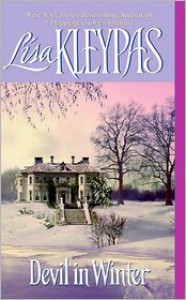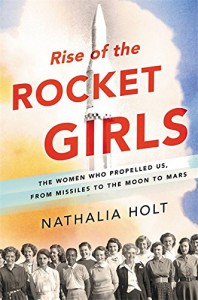Jammies' books
Currently reading

I feel bad that I couldn't finish this book. I received a review copy, and while a free book doesn't guarantee a good review, I do feel as though it should guarantee a review.
Unfortunately, when one story where the dog dies was followed by another where a dog is abused, I couldn't take it any more. I put down the book and will not be picking it up again.

This was a striking novel, less for the plot than for the author's ability to convey a point of view so entirely opposite to my own and make me empathize. I've read enough history to know that the folks colloquially known as "Preppers" are not necessarily crazy, but I am staunchly on the side of gun control. Kudos to the author for making me really understand and feel the fears of a main character who does believe that the American government wants to take away all guns. I am stunned and impressed with how very much I could identify with Bex, who is almost completely my opposite.
The story was compelling and the decisions Bex has to make are heart-wrenching but the whole novel is utterly believable. Bex and the people around her all exist somewhere in the here-and-now. An eye-opening and amazing novel.
A copy of this book was sent to me for an unbiased review.

Although it wasn't perfect, I really enjoyed this book. The young adult characters were multi-dimensional and engaging, the adult characters less so. Some of the horrors experienced by Edgar are things that have scared me silly in the past, so those really resonated with me. However, there were a number of typographical and grammatical errors that took off a half star. A copy of this book was sent to me for an unbiased review.

Right from the beginning, it's clear that neither the main character nor the author actually read any of the Mary Poppins books. Unlike Julie Andrews' character in the movie, Mary Poppins in the books is a right bitch.
Not a bad book, but the endless callbacks to The Stand got exasperating, the ending was way too drawn out and I call BS on Hill's claim that his agent didn't know his real last name for years.

For anyone interested in music and/or feminism, this is a must-read. Covering the lives and composition of eight forgotten composers, the author draws clear and compelling portraits of the women and the societies in which they lived.
All eight women have in common the fact that they had to work harder than men, keep their music in the bounds of what was acceptable to society and juggle family obligations. It is both sad and infuriating that even in our "enlightened" days, Clara Schumann is known as someone's wife, and none of the other composers are much remembered at all.
We have a long way to go, baby.

This review is for all 5 books in the series, because while I think they're harmless one by one, taken as a whole, they support rape culture.
Let me say that there is no outright rape in these books, but they are all steeped in the trope of a beautiful virgin (in this case one in each book) who only needs a forceful man to awaken her sexual urges.
While I love the idea of the four wallflowers working together to secure husbands, and the descriptions of the gorgeous clothing, the characters themselves are fairly stereotypical--the shy girl, the brash American girl, the dreamer and the down-on-her-luck girl from the gentry. The men are equally two-dimensional--the rake, the industrialist, the stuffy lord and the irritating American.
All of the female characters, the four wallflowers and a secretary in the last book, are preyed on by the men, who reduce them to quivering masses of sexual desire by forcing kisses and gropes (and in one case, oral sex) on them. It's always because the women are so, so desirable that the men cannot withstand their urges.
It's been almost 200 years since <U>The Lustful Turk</U> was written, but apparently we're still believing this trope, glorifying it and in all too many cases, acting on it.
We need to stop.
 1
1

This review is for all 5 books in the series, because while I think they're harmless one by one, taken as a whole, they support rape culture.
Let me say that there is no outright rape in these books, but they are all steeped in the trope of a beautiful virgin (in this case one in each book) who only needs a forceful man to awaken her sexual urges.
While I love the idea of the four wallflowers working together to secure husbands, and the descriptions of the gorgeous clothing, the characters themselves are fairly stereotypical--the shy girl, the brash American girl, the dreamer and the down-on-her-luck girl from the gentry. The men are equally two-dimensional--the rake, the industrialist, the stuffy lord and the irritating American.
All of the female characters, the four wallflowers and a secretary in the last book, are preyed on by the men, who reduce them to quivering masses of sexual desire by forcing kisses and gropes (and in one case, oral sex) on them. It's always because the women are so, so desirable that the men cannot withstand their urges.
It's been almost 200 years since <U>The Lustful Turk</U> was written, but apparently we're still believing this trope, glorifying it and in all too many cases, acting on it.
We need to stop.

This review is for all 5 books in the series, because while I think they're harmless one by one, taken as a whole, they support rape culture.
Let me say that there is no outright rape in these books, but they are all steeped in the trope of a beautiful virgin (in this case one in each book) who only needs a forceful man to awaken her sexual urges.
While I love the idea of the four wallflowers working together to secure husbands, and the descriptions of the gorgeous clothing, the characters themselves are fairly stereotypical--the shy girl, the brash American girl, the dreamer and the down-on-her-luck girl from the gentry. The men are equally two-dimensional--the rake, the industrialist, the stuffy lord and the irritating American.
All of the female characters, the four wallflowers and a secretary in the last book, are preyed on by the men, who reduce them to quivering masses of sexual desire by forcing kisses and gropes (and in one case, oral sex) on them. It's always because the women are so, so desirable that the men cannot withstand their urges.
It's been almost 200 years since <U>The Lustful Turk</U> was written, but apparently we're still believing this trope, glorifying it and in all too many cases, acting on it.
We need to stop.
 1
1

This review is for all 5 books in the series, because while I think they're harmless one by one, taken as a whole, they support rape culture.
Let me say that there is no outright rape in these books, but they are all steeped in the trope of a beautiful virgin (in this case one in each book) who only needs a forceful man to awaken her sexual urges.
While I love the idea of the four wallflowers working together to secure husbands, and the descriptions of the gorgeous clothing, the characters themselves are fairly stereotypical--the shy girl, the brash American girl, the dreamer and the down-on-her-luck girl from the gentry. The men are equally two-dimensional--the rake, the industrialist, the stuffy lord and the irritating American.
All of the female characters, the four wallflowers and a secretary in the last book, are preyed on by the men, who reduce them to quivering masses of sexual desire by forcing kisses and gropes (and in one case, oral sex) on them. It's always because the women are so, so desirable that the men cannot withstand their urges.
It's been almost 200 years since <U>The Lustful Turk</U> was written, but apparently we're still believing this trope, glorifying it and in all too many cases, acting on it.
We need to stop.

This review is for all 5 books in the series, because while I think they're harmless one by one, taken as a whole, they support rape culture.
Let me say that there is no outright rape in these books, but they are all steeped in the trope of a beautiful virgin (in this case one in each book) who only needs a forceful man to awaken her sexual urges.
While I love the idea of the four wallflowers working together to secure husbands, and the descriptions of the gorgeous clothing, the characters themselves are fairly stereotypical--the shy girl, the brash American girl, the dreamer and the down-on-her-luck girl from the gentry. The men are equally two-dimensional--the rake, the industrialist, the stuffy lord and the irritating American.
All of the female characters, the four wallflowers and a secretary in the last book, are preyed on by the men, who reduce them to quivering masses of sexual desire by forcing kisses and gropes (and in one case, oral sex) on them. It's always because the women are so, so desirable that the men cannot withstand their urges.
It's been almost 200 years since <U>The Lustful Turk</U> was written, but apparently we're still believing this trope, glorifying it and in all too many cases, acting on it.
We need to stop.

This book should be required reading in junior high and middle school classes and for anyone who feels that women aren't suited for STEM classes or careers. Not only is it packed with history on the American Space program, it also shows the integral parts played in said history by women.
Adult women should to read this book, to see all the amazing first steps taken by the Rocket Girls--working moms, pioneering computer science majors, first users of electronic calculating machines and computers, the first women to wear pantsuits to work.
Boychild geeks who want women out of science fiction need to read this book and learn that there wouldn't be jet engines or spaceflight without women.
And frankly, anyone who loves a good story should read this, because it's not at all dry. The book is factual and supported with all kinds of documentation, but it's also a thrilling adventure tale that sweeps you right along.
I also learned that the first flyby of Mars happened on the evening of the day I was born.

I got this book from the Early Reads giveaway page at Library Thing, and it was such an amazing gift from the author! I enjoy post-apocalyptic fiction, and while this was set while the apocalypse was building, I enjoyed it as much or more than any of the many books I've read in the genre.
Not only is the language both lovely and accessible, but the subject of global warming is very timely and believable. So are the characters, including a trans teen who is one of the viewpoint characters. I'm going to go look for Ms. Fagan's first novel, and I'll be keeping my eyes open for more from her going forward.









